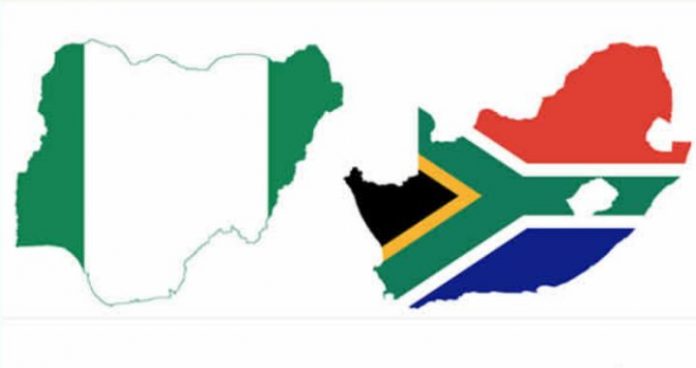A bilateral trade relationship officially put at $60 billion is under threat following the failure of Nigeria and South African governments to curtail xenophobic attacks which escalated in both countries last week.

This is in addition to the yet-to-be quantified loss in reprisal on various South African brands in Nigeria, even as other African nations joined the fray to protest South Africa’s alleged tacit support for the arsonists.
However, the Consul-General of South Africa High Commission, Mr. Darkey Africa, has urged that the bilateral trade and other diplomatic ties between both nations, which are currently strained, should not be allowed to snap because of the potential devastating effects on both economies.
Already, about 1,000 people have reportedly taken refuge in halls set up for foreigners displaced by xenophobic violence in the Johannesburg region, even as the Federal Government ordered the evacuation of Nigerians willing to return home.

Foreign trade figures from the National Bureau of Statistics show that in the first quarter of 2019, South Africa was one of Nigeria’s top five export destinations, having received goods valued at N325.5 billion or 7.2 per cent from Nigeria within the period.
According to a 2013 BBC World Service Poll, 63% of Nigerians view South Africa’s influence positively, with 24% expressing a negative view.
Following a series of xenophobic attacks on Nigerians living in South Africa in 2017, relationships between the two countries deteriorated , in September 2019 the attacks resumed with the destruction of Nigerian property in Johannesburg. An estimated 120 people have been killed since the attacks started. Reprisal attacks have been reported to occur in Lagos, Nigeria.
In 2008, approximately $2.1 billion was traded between the two states. By 2012 total bilateral trade had increased to $3.6 billion. … Its offices are in Lagos, Nigeria and it has in its membership 315 companies currently trading in both Nigeria and South Africa.
During the apartheid era in South Africa, Nigeria was one of the foremost supporters of anti-apartheid movements, including the African National Congress; the Nigerian government issued more than 300 passports to South Africans seeking to travel abroad. Sonny Okosun, a Nigerian musician, wrote the hit song “Fire in Soweto” in 1977 to commemorate the 1976 Soweto uprising against apartheid in South Africa.














